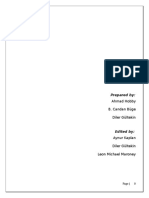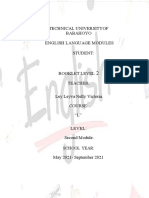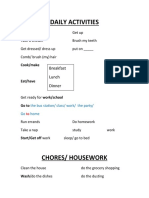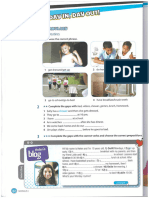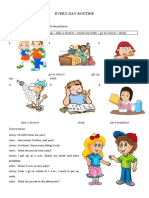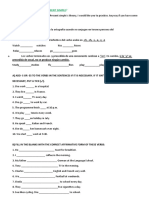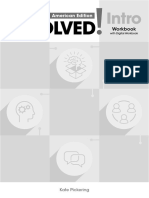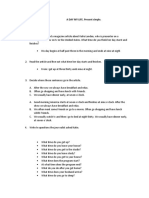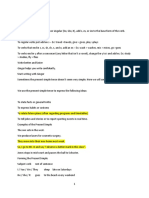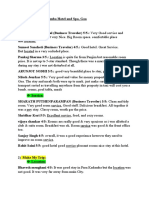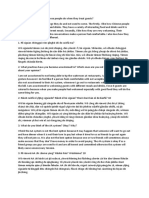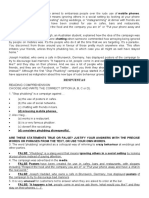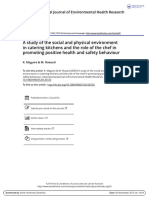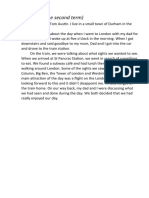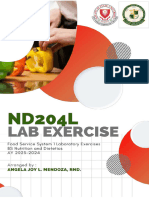0% found this document useful (0 votes)
32 views6 pagesSimple Present
The document contains exercises focusing on the present simple tense, including affirmative and negative forms, as well as question formation. It provides examples of daily activities and emphasizes the use of adverbs of frequency, connectors, and time expressions to enhance sentence structure. Additionally, it suggests organizing writing into paragraphs based on morning, day, and evening activities.
Uploaded by
Nishani ThusharaCopyright
© © All Rights Reserved
We take content rights seriously. If you suspect this is your content, claim it here.
Available Formats
Download as PDF, TXT or read online on Scribd
0% found this document useful (0 votes)
32 views6 pagesSimple Present
The document contains exercises focusing on the present simple tense, including affirmative and negative forms, as well as question formation. It provides examples of daily activities and emphasizes the use of adverbs of frequency, connectors, and time expressions to enhance sentence structure. Additionally, it suggests organizing writing into paragraphs based on morning, day, and evening activities.
Uploaded by
Nishani ThusharaCopyright
© © All Rights Reserved
We take content rights seriously. If you suspect this is your content, claim it here.
Available Formats
Download as PDF, TXT or read online on Scribd
/ 6



